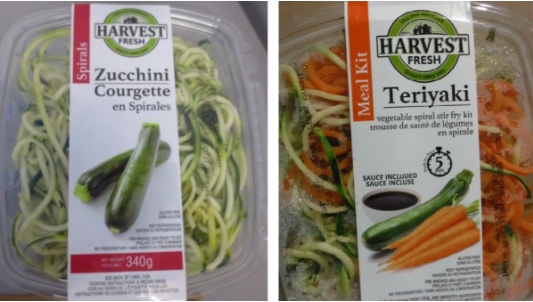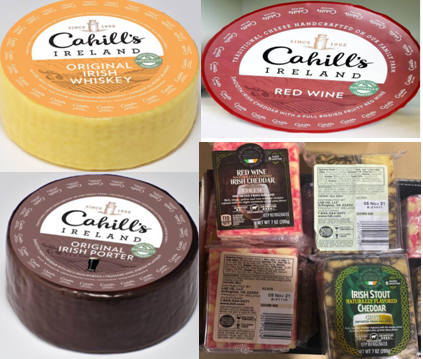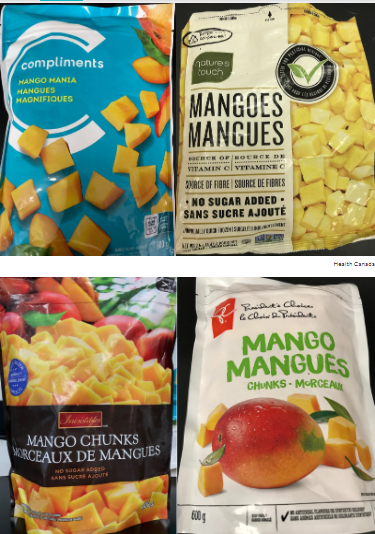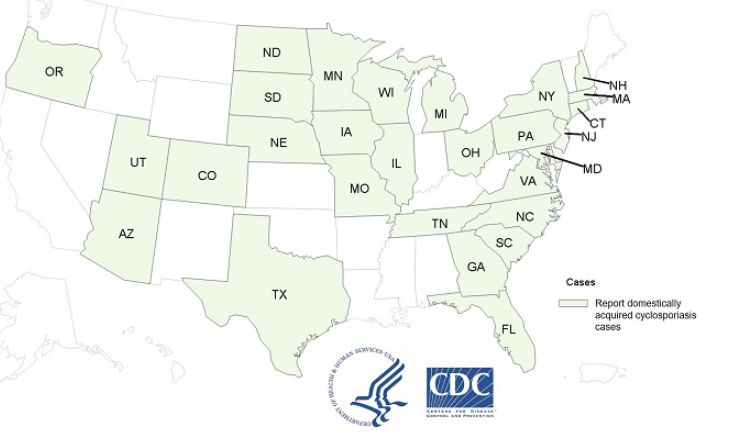The CFIA has expended the recall issued on July 25, 2021, of Harvest Fresh brand zucchini spirals due to Listeria monocytogenes contamination to include Harvest Fresh brand Teriyaki Vegetable Spiral Stir Fry Kit. CFIA test results triggered the inclusion of the additional product. There have been no reported illnesses associated with the consumption of these products. @ https://www.producebluebook.com/2021/08/02/harvest-fresh-zucchini-spirals-teriyaki-vegetable-spiral-stir-fry-kit-recalled-due-to-listeria/#
ruth
The FDA reported that Cahill’s Farm Cheese (Limerick, Ireland) recalled at least 33 batches/lots of Cahill’s branded Original Irish Porter Cheese, Cahill’s Irish Whiskey Cheese. Additional recalled products include Cahill’s Wine Cheese and several Cheese products from Lidl, including Lidl, branded Preferred Selection Irish Stout Cheddar Cheese, and Lidl branded Preferred Selection Red Wine Cheddar Cheese from the American marketplace due to suspected Listeria monocytogenes. No Illnesses have been reported to Cahill’s to date. The company routine testing detected positives of Listeria Monocytogenes in a sample. The company investigation identified a single piece of equipment as the source of the contamination, and the equipment was immediately removed from our production line. @ https://www.fda.gov/safety/recalls-market-withdrawals-safety-alerts/cahills-farm-cheese-recalls-specialty-cheddar-cheese-due-possible-health-risk
Cahill’s Farm Cheese, Ireland is recalling a number of batches of specialty cheddar cheese due to possible presence of Listeria monocytogenes
Health Canada recalled multiple brands of frozen mango because they may be contaminated with Hepatitis A. The recalled brands of mangos are Nature’s Touch frozen mango, Compliments mango mania, Irresistibles frozen mango chunks, and President’s Choice frozen mango chunks. The agency reported that it had received information about people becoming sick after eating the recalled products. Health Canada reported that two people in Quebec, 1 in N.S., tested positive for Hepatitis A after consuming the frozen mangoes. The frozen mangoes were distributed in Manitoba, New Brunswick, Newfoundland and Labrador, Nova Scotia, Ontario, Possibly National, Prince Edward Island, Quebec, and Saskatchewan. No hospitalizations or deaths have been reported. @ https://inspection.canada.ca/food-recall-warnings-and-allergy-alerts/2021-07-30/eng/1627691106085/1627691112044
Nature’s Touch Frozen Food Inc. is recalling various frozen mangoes from the marketplace due to possible Hepatitis A contamination.
ruth
The CDC reported that it could not find the common source for this year’s outbreak of Cyclosporiasis. The number of reported cases of domestically acquired Cyclosporiasis illnesses has increased by 254 to 462 laboratory-confirmed cases since the last update on July 14, 2021. Cases continue to be reported to CDC. Illness onset has been reported to CDC by 29 jurisdictions, including 28 states and New York City. At least 41 people have been hospitalized; no deaths have been reported. @ https://www.cdc.gov/parasites/cyclosporiasis/outbreaks/2021/seasonal/index.html#states
CDC and federal, state, and local public health partners are investigating an increase in reported cases of Cyclospora infection (cyclosporiasis). Reports of cases tend to increase during summer months in the United States.




